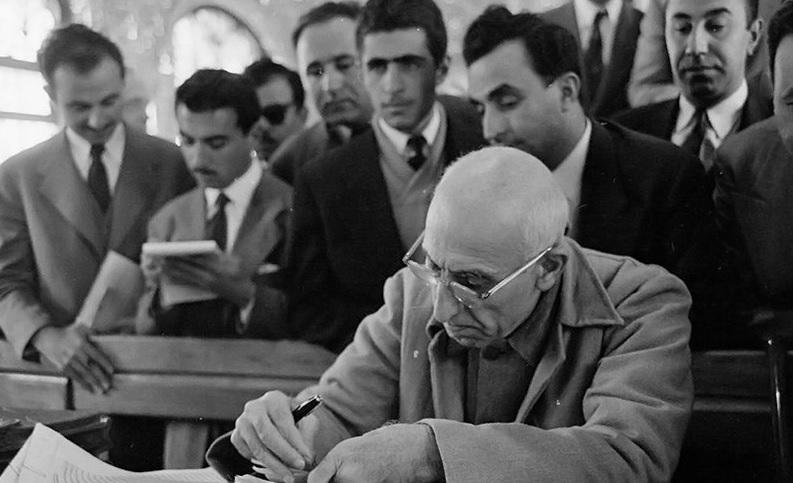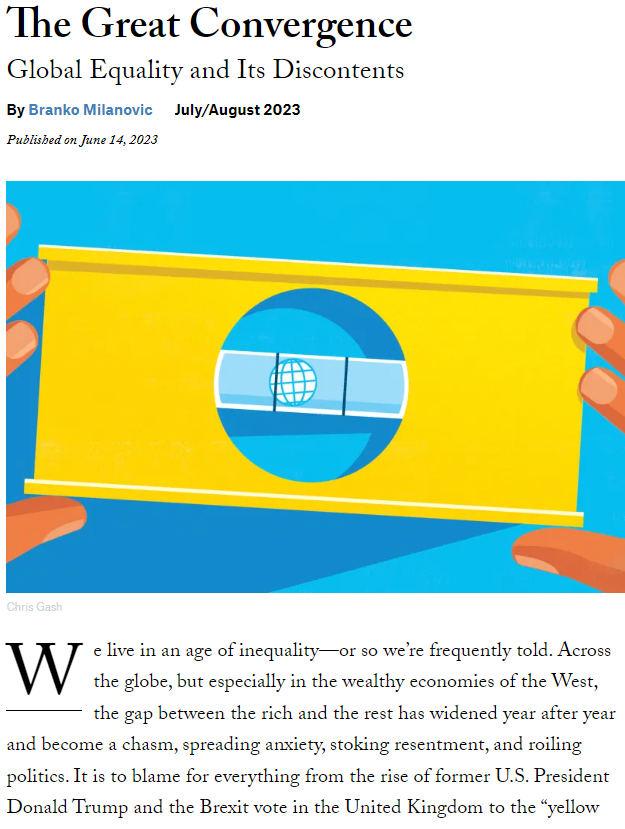
Media Review: The Guardian says Britain must acknowledge its role in the 1953 coup in Iran
A report in the British newspaper, The Guardian, spoke today, Tuesday, about "the need for the United Kingdom to recognize its role in the coup...

A report in the British newspaper, The Guardian, spoke today, Tuesday, about "the need for the United Kingdom to recognize its role in the coup...

An article in the magazine "Foreign Affairs" talks about global income levels, within the next twenty to thirty years, and says that the number of...

The Washington Post reported today, Tuesday, that three months before the Nord Stream pipeline bombing, "Nord Stream", the administration of US President Joe Biden learned...

Maduro's visit comes as the kingdom has restored ties with both Iran and Syria, two nations that are also target of the US 'maximum pressure'...

The US Fifth Fleet and the Combined Maritime Forces agreed on Iran's announcement of its intention to form a naval alliance with Saudi Arabia and other Gulf countries.
And the "Breaking Defense" website, which specializes in military news, quoted a spokesman for the US Fifth Fleet and the Combined Maritime Forces, Tim Hawkins, as saying, "The alliance that Iran announced its intention to form with Saudi Arabia and other Gulf countries is illogical and defies reason."
Hawkins claimed that "Iran wants to form a maritime security alliance to protect the waters that threaten it," he said.
This American fear was accompanied by an Israeli fear, as Israeli media published a report describing Iran's decision as "disturbing."
China, on the other hand, through its foreign ministry, welcomed the Iranian-Saudi-Emarati collaboration. "We welcome the alliance that includes Iran, Saudi Arabia and the UAE," Chinese Foreign Ministry Spokesperson said. "We welcome the announcement of the formation of a joint naval alliance that includes Iran, Saudi Arabia, the UAE and some other parties. This alliance enhances security and stability in the region." He added.

Five people told Reuters that senior officials from about two dozen of the world's top intelligence agencies held a secret meeting on the sidelines of...

The foreign ministers of the BRICS countries, who met Thursday in the Cape, before a summit scheduled for August, whose preparations are dominated by the...

A cryptic statement linking Ukraine to the security of the Middle East, was made by the Secretary of the National Security and Defense Council of...

Mapping of national and international credible newspapers, undertaken by research charity Action on Armed Violence, shows that, since 2011, UK Special Forces (UKSF) have been...

German investigators are sceptical of claims that Russian naval ships sabotaged the Nord Stream gas pipelines and are instead pursuing leads that point to the...

The optics are unmistakable: while the G7 meets in the Japanese city bombed by weapons of mass destruction to forces Japanese leaders to end the...

In April of 2008, a senior British intelligence official traveled to Tel Aviv, in addition to several European capitals, with the aim of conveying unusual...

It would seem that Russian leader have a counter-move to every move by Western countries who are increasing or thinking about increasing their support to...

Aware of the cost of war experienced by Russia, China seems to have a different strategy for taking back Taiwan: it is about isolating the...

Media reports are now revealing that Iran’s top security official Ali Shamkhani and Russian President Vladimir Putin had extensive talks on de-dollarization of trade between...

Western media reported on Monday that investigators in Germany suspect that the yacht, previously linked to the Nord Stream attack, was used to divert attention from the true perpetrators of the sabotage.
The Washington Post, quoting informed sources, indicated that “a number of officials in the United States and Europe share Germany’s suspicions that a crew of six could plant hundreds of kilograms of explosives to blow up pipelines.”
The investigation is examining the version that the Andromeda yacht may not have been the only one used in the attack, or even served as a distraction.
Although a German investigation found traces of "military" explosives found on a table in the cabin of the yacht to match those used in the pipeline, some officials suspect that experienced saboteurs left behind such clear evidence of guilt. The publication says that they do not rule out that someone is deliberately trying to lead the investigation down the wrong path.
The newspaper reported that some Western officials are discussing the possible involvement of Warsaw and Kiev in the attack on the "Nord Stream".
Based on Germany's initial findings, officials are discussing behind the scenes the possible involvement of the Polish or Ukrainian government in the attack.
Some have said Poland may have had a motive, given that it has been one of the fiercest critics of the Nord Stream project since its inception in the late 1990s, the journalist reported.
Russian authorities dispute, and so does China based on Chinese media report, the Western claims of an act of sabotage that did not involve any state actor, including Ukraine and asked UNSC to mandate an independent investigation. Western states blocked the UNSC from doing so.

...

The UAE National Security Adviser, also self-described as the architect of UAE national security, Tahnoon Bin Zayed, confirmed during the reception of the Secretary of...

China’s quiet diplomacy in the Middle East turned a low-level conflict with Iran into a consequential development that could change the trajectory of region.For months...